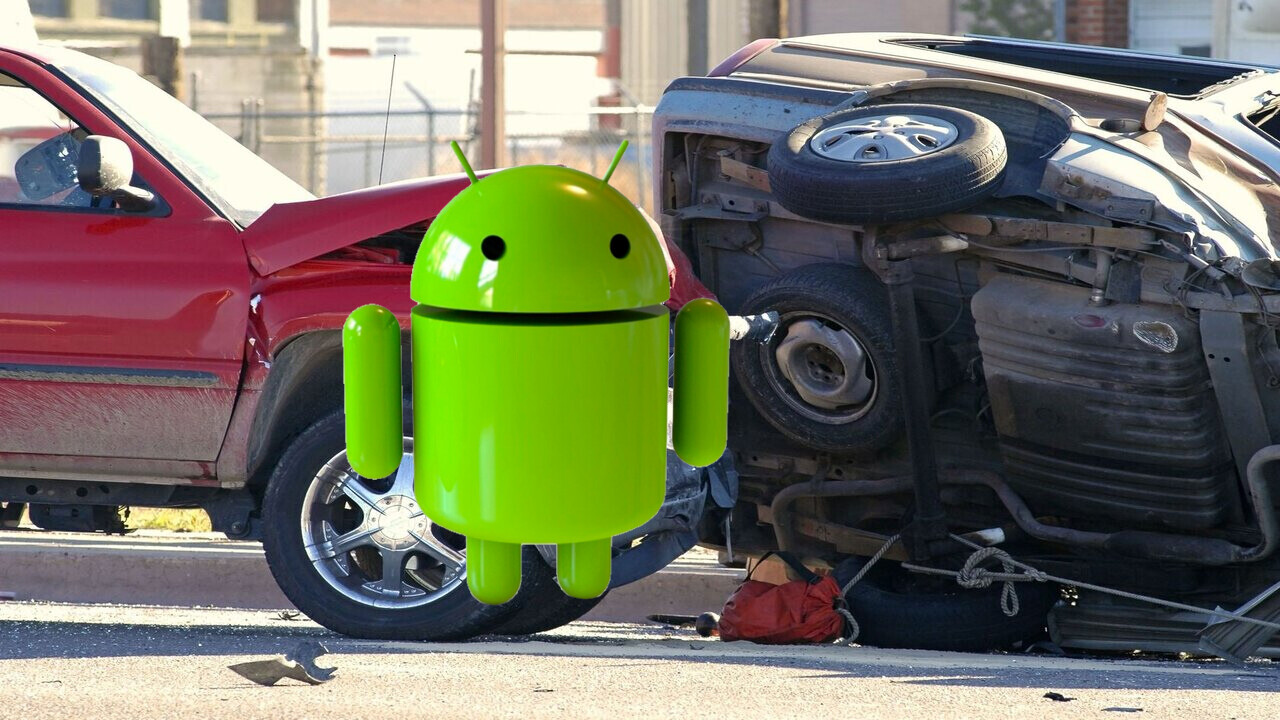
We live in an era of citizen science where anyone can be a researcher through online surveys and data programs. But it doesn’t take much to determine the researcher’s ulterior motives.
So when I saw a research report by car insurer Jerry claiming that Android users are safer than those that own an iPhone, my eyes started rolling. Let’s take a look a what it said, what they think it means, and what I think it could mean:
How Jerry conducted its research
In its research, Jerry analyzed data collected from 20,000 drivers during 13 million kilometers of driving over 14 days. The data generated an overall driving score and sub-scores for acceleration, speed, braking, turning, and distraction. Then it grouped the results by smartphone operating system and various demographic characteristics.
What does its research say?
Jerry claims Android users beat iPhone users overall in safe driving:

Specifically, the research found that Android users scored an overall 75, trumping iPhone users’ score of 69 in terms of safe driving overall.
Sure, they scored higher, but there’s not much of a difference between 69 and 75. And even less between 82 and 84 for accelerating, or 78 and 80 for braking.
Overall, I’m not sure these are significant enough differences to instigate any kind of action or triumph.
Look, I get it. You number crunch, and you want to make a big assertion to prove a hypothesis, or whatever. I’ve written plenty of whitepapers over the years where you try to make fairly weak data say something significant. But these numbers are more nice than assertive.
The only one that really interested me was distracted driving. This category had the biggest difference, with Android users scoring 74 over iPhone users’ 68, seven points higher. I would have liked some insights on this. Are iPhone users more distracted by phone apps? Are they spending more time fiddling with playlists and podcasts? Or are they distracted for other reasons?

The research by Jerry also finds that Android users without a high school diploma scored higher than iPhone devotees with PhDs, master’s, and bachelor’s degrees.
The study doesn’t offer any explanation. But I suspect one factor may be that early school leavers are likely to have more driving experience, perhaps because a lower-income job requires a longer commute from home to work. Or they may have blue-collar jobs such as delivery driving.
What is the impact of credit scores and Android use on driving?

Similarly, the stats do have something interesting to say about credit ratings. As an insurance company is doing the research, this is Jerry most likely hedging its bets.
While scores closely tracked credit ratings, Android devotees in the lowest credit score bracket outperformed even iPhone users in the highest bracket. I would like to know what other findings could be common amongst the low credit subset of phone users.
It could be as simple as that people with low credit scores are more likely to be low-income earners. Thus, they are more likely to own an Android, which is cheaper than an iPhone. They are also less likely to afford driving fines, which acts as an impetus to drive more carefully. I really would have expected Jerry to dig in a lot more here for some detailed analysis.
Instead, the firm suggests that you can find a rationale for the (nominally) higher Android scores in personality studies of the two groups.
One study found that Android fans were more conscientious. In contrast, another found they exhibited higher levels of honesty and “feel little temptation to break the rules.” iPhone users, on the other hand, showed higher levels of emotionality, meaning they are less consistent and predictable in their behavior. Maybe that translates into sharper acceleration, braking, turning, and higher speeds — all behaviors that would drag down a person’s score.
I don’t know; it seems a little bit of a stretch to me.
I should add, for journalistic integrity, I’ve only ever owned one iPhone, which got left on a plane in Frankfurt years ago. Annoying. Since then, it’s been a variety of Android phones, including the Essential phone (RIP). I currently own a OnePlus and have plans to buy a Fairphone next. But if I had more money, of course, I’d also own an iPhone for the advantage of app testing. So I’m not wedded to either protocol.
I don’t think I’m anywhere near getting lower premiums for owning an Android. But the article has had one significant success, it’s got journalists like me talking about Jerry insurance, and it may have been the company’s actual aim after all.
Get the TNW newsletter
Get the most important tech news in your inbox each week.




